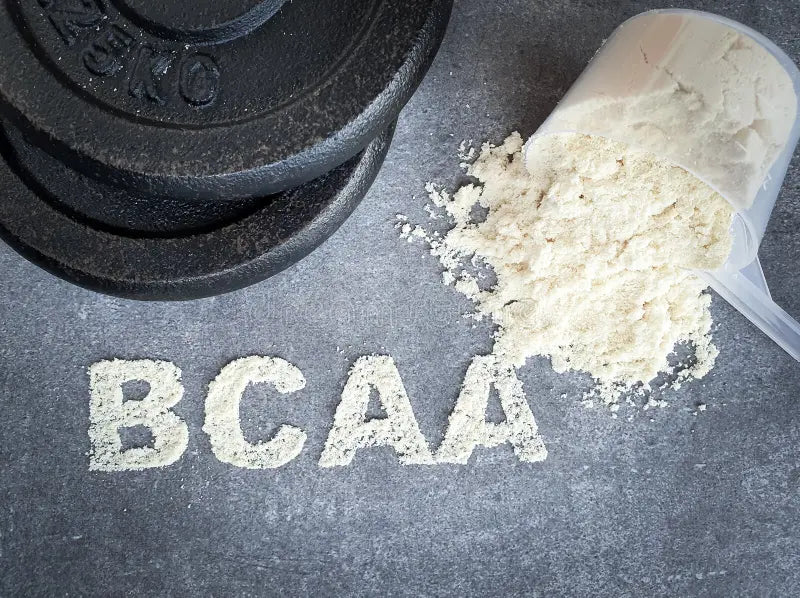
When to Take BCAAs for Better Muscle Recovery
Share
Introduction: The Role of BCAAs in Muscle Repair
If you’ve ever felt sore after a workout, you’ve experienced what’s known as delayed-onset muscle soreness (DOMS). This soreness, which peaks a day or two after resistance training, happens because of tiny tears in the muscle fibers. While it’s a normal part of building strength, many people look for ways to recover faster—and one popular choice is taking branched-chain amino acids (BCAAs).
BCAAs are essential nutrients (leucine, isoleucine, and valine) that help muscles recover after exercise. But when is the best time to take them—before or after a workout? A recent study looked at this question and found some interesting answers that could help you get the most from your supplements.
What Are BCAAs and Why Do People Take Them?
BCAAs are building blocks of protein. They make up a large part of our muscle tissue and are known to:
- Support muscle repair
- Reduce fatigue
- Decrease muscle soreness
- Help with recovery after intense exercise
Many athletes and gym-goers take BCAAs in powder or capsule form, hoping to bounce back faster from tough training sessions. But the timing of when you take them might matter more than you think.
What the Study Did
This study involved 24 healthy, untrained male college students. They were divided into groups that took either a BCAA supplement or a placebo. Each participant tried BCAA before and after their resistance training sessions at different times, and their soreness, jumping ability, and levels of inflammation were tracked over 48 hours.
Researchers looked at:
- Muscle soreness levels
- Inflammation markers in the blood
- Jumping performance (as a measure of muscle function)
Key Finding: Post-Workout BCAA Works Better
The main takeaway was clear: Taking BCAA supplements after a workout was more effective than taking them before.
- Less Muscle Soreness: Those who took BCAAs after their workout felt significantly less sore 48 hours later compared to those who took them before or took a placebo.
- Lower Inflammation: Blood tests showed lower levels of inflammation markers (IL-6 and CRP) in the post-exercise BCAA group. This suggests faster healing and less muscle damage.
- No Big Difference in Muscle Power: While soreness and inflammation were better managed, jump performance (used to measure muscle recovery) didn’t improve much with BCAA at either time.
What This Means for You
If you’re using BCAA supplements to help with recovery, the best time to take them may be right after your workout. This is especially true if your goal is to reduce soreness and inflammation after strength training.
It’s also important to know that BCAAs don’t act like painkillers—they don’t remove soreness completely. But they may help your body bounce back more quickly, especially if you’re new to resistance training or pushing your limits in the gym.
Tips for Using BCAAs Wisely
- Stick to the right dosage. This study used 40 mg per kg of body weight.
- Pair with protein. BCAAs work best when your overall diet supports muscle growth.
- Don’t skip rest and hydration. Supplements help, but proper recovery habits matter more.
- Track your soreness. Noticing when soreness goes away faster may help you fine-tune your routine.
Who Might Benefit Most
While this study focused on untrained young men, many of the findings apply to:
- Beginners in strength training
- People returning after a break
- Athletes increasing their training intensity
- Anyone prone to post-exercise soreness
If you’re highly trained or already eating a high-protein diet, the effects might be less noticeable, but they can still help.
Final Thoughts: Timing Matters More Than You Think
Branched-chain amino acids are a useful tool for muscle recovery—but only if used the right way. Based on this new research, taking BCAAs after your workout can help reduce soreness and inflammation better than taking them before. It’s a small change in timing that could lead to better results and a quicker return to training.
If you’re looking for a simple way to improve recovery and feel less sore, consider adding post-workout BCAAs to your routine. Just remember: they’re a supplement—not a substitute—for smart training and recovery.
